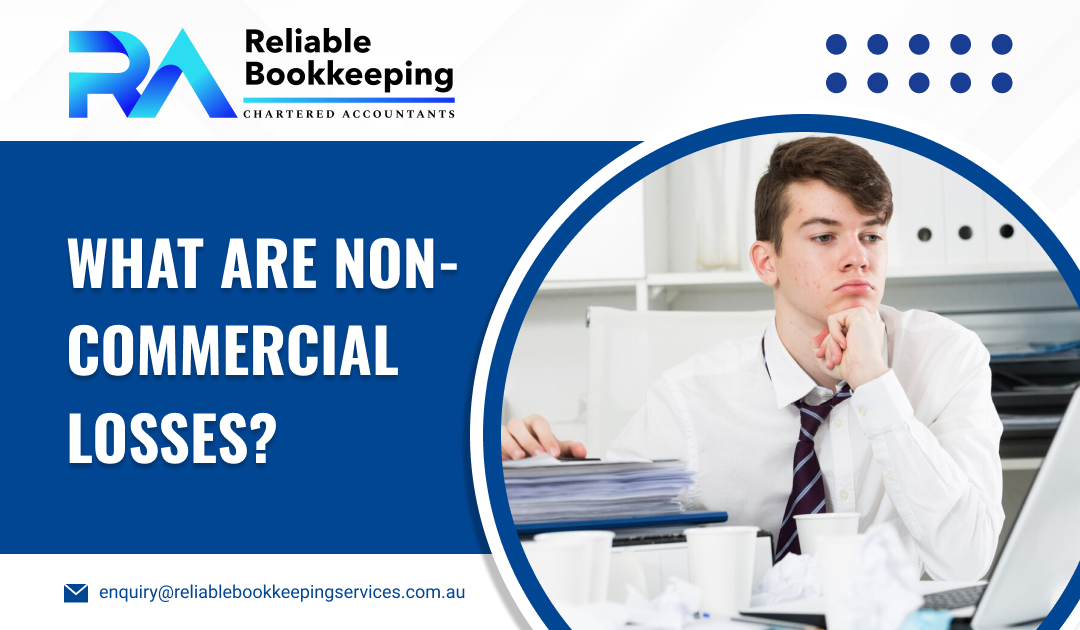See how you might be able to offset your business loss against other income if you are a sole trader or in a partnership.
What are non-commercial losses?
If you have a business that is not your main source of income and operates with a commercial purpose, you may incur a non-commercial loss. In this case, you cannot use the losses to reduce your overall income for the year unless the business activity generates a profit. If your business is incurring a loss, and you’re unable to use it to reduce your taxable income, you can carry forward the loss to future years when the business activity becomes profitable. This rule applies whether your business operates in Australia or in a foreign country.
Deferred non commercial losses: how can you defer your losses?
You will be able to defer your loss for use in a future year if you can’t deduct your business activity loss in the current year. If you make a business profit in the following year, you will be able to offset some or all deferred loss against this profit up to your profit amount. Moreover, if you don’t know how to defer your losses, you can ask small business accountants in Melbourne.
- Defer losses indefinitely
There’s no time restriction on deferring your losses. You can defer your losses indefinitely until one of the following conditions meets:
- if you make a profit from a business activity, in which case the deferred loss can be offset up to the profit amount from the business activity
- you meet conditions set out for non-commercial losses
- the Commissioner decides to offset the loss.
- Minimised by any net exempt income
If you have other tax losses, these should be minimised by any net exempt income you earned during the first year. To minimise your non-commercial loss balance any remaining net exempt income is used. If you don’t have other tax losses, then your exempt income will be used to minimise your non-commercial losses. If the reduced amount cannot be offset completely against other income, it is deferred to a later year. In every future year, the deferred loss balance is offset by that year’s exempt income, where this exempt income has not been applied against other ‘normal’ tax losses.
Non commercial loss rules
- Are you in business?
If you want to claim a loss or apply for the Commissioner’s discretion to let you claim a loss, your activity should be in business. You must have started the business activity.
- Similar business activity
If you have started more than one business activity and they are similar business activities, you could collaborate them together when taking non-commercial loss rules into account.
- Excepted activity
If your loss-making business is in professional arts or primary production, and your assessable income from other sources is lower than $40,000, you can offset your losses from other income.
- Less than $250,000 income requirement
The total of your taxable income, reportable super contributions, reportable fringe benefits and total net investment losses should be lower than $250,000 for you to qualify to offset your losses in the current year.
- Four tests
If you meet the income requirement, determine if you pass any of the four tests. If you do, you can offset the loss for that year.
- Commissioner’s discretion
If you don’t meet the income requirement or any of the four tests, you may request the Commissioner’s discretion to allow the claim. The Commissioner will consider exercising discretion only under limited circumstances, such as:
- Special circumstances beyond your control that prevented you from passing one of the four tests, or
- The nature of your business requires a lead time before you can pass one of the four tests or achieve profitability.
If these conditions are not met, you will need to defer the loss for that income year.
Conclusion
The blog outlines the basics of non-commercial business losses along with deferring non-commercial losses. For more information, you can reach Reliable Bookkeeping Services provider.

